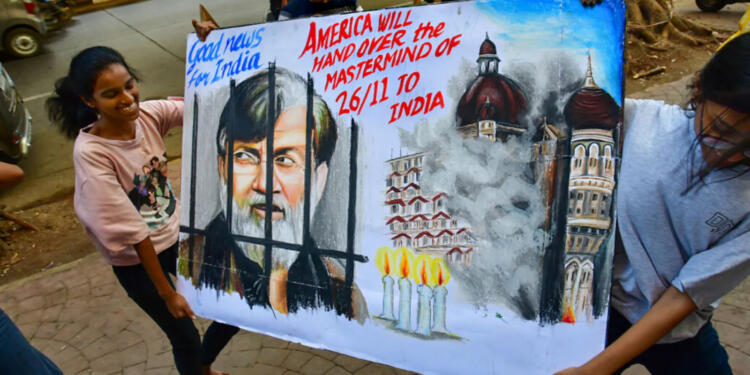The plea by 26/11 Mumbai terror attack accused, Tahawwur Rana, was turned down by the United States Supreme Court. The development comes after US President Donald Trump cited the issue of Rana’s extradition to India during his joint press conference with Indian Prime Minister Narendra Modi.
Pakistani origin businessman imprisoned in Los Angeles, Rana is 64. He is known to have ties with Lashkar-e-Taiba (LeT) terrorist David Headley, one of the key conspirators behind the 26/11 Mumbai terror attacks. Indian authorities have been after Rana for extradition because of his role as a facilitator for the attacks that claimed 166 lives
While Rana had procured an “Emergency Application for Stay” with Associate Justice of the Supreme Court of the United States and Circuit Justice for Ninth Circuit Elena Kagan, his application was denied, according to the March 6, 2025 update on the Supreme Court’s official website.
Rana’s plea rejection aligns with Trump’s statement where he had said that his administration had approved the extradition of the accused, a very evil person wanted by Indian law enforcement on charges relating to the Mumbai attacks. His remarks were seen as a big step in the direction of strengthening Indo-US counterterrorism cooperation.
In his plea, Rana argued that his extradition would violate United States law and the United Nations Convention Against Torture. He claimed there were substantial grounds to believe that, if sent to India, he would be at risk of torture. His petition emphasized that as a Muslim of Pakistani origin facing charges in the Mumbai attacks, the likelihood of mistreatment in Indian custody was even higher.
Despite his claims, the US legal system has upheld the extradition request, indicating that due process was followed in determining his fate. The Supreme Court’s decision effectively clears the way for Tahawwur Rana to be handed over to Indian authorities, where he will face prosecution for his criminal involvement in the 26/11 terror attack.
Tahawwur Rana’s extradition is expected to be a great breakthrough for India’s investigative agencies in an attempt to deliver justice to the victims of the 26/11 attacks. During his trial in India, he could shed light on the planning and execution phase, thereby further exposing the international network of terrorist organizations.

























